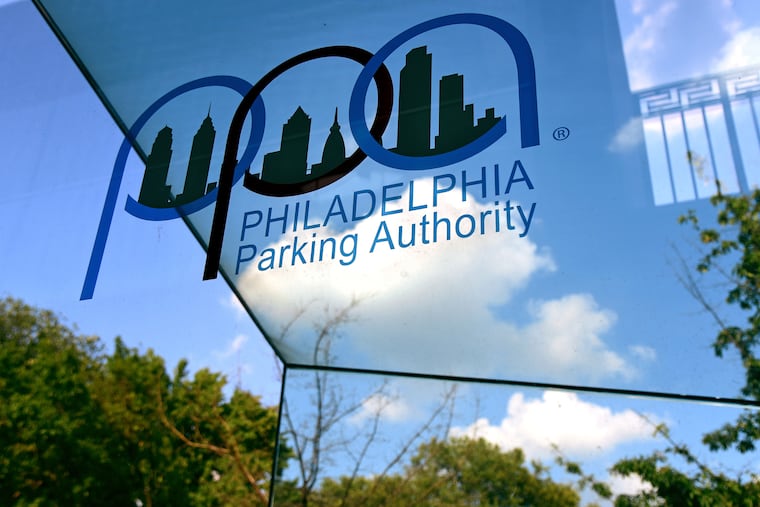PPA cancels controversial $10.8 million debt request against the cash-strapped Philadelphia School District
The PPA said canceling the seven-figure repayment request was the right thing to do, and it was made possible by some tweaks to pension and healthcare benefits for retired PPA personnel.

The Philadelphia Parking Authority on Monday announced a resolution to cancel the controversial $10.8 million debt it lodged against the cash-strapped School District of Philadelphia last year, ending a months-long flashpoint between public school advocates and parking officials.
In a reversal, the PPA said canceling the eight-figure repayment request was the right thing to do, and said it was made possible by some tweaks to pension and health care benefits for retired PPA personnel.
“This is a legal and responsible resolution for all parties that benefits the school children of Philadelphia,” PPA chairwoman Beth Grossman said, in a statement.
» READ MORE: PPA tells the cash-strapped Philadelphia school district to pay back $11.3 million
Each year, the PPA cuts both the city and school district a slice of its parking revenue, drawn from tickets, meters, and other on-street parking operations. The profit-sharing is mandated by a 2004 agreement that solidified Republican control over the state-run parking authority. Under the deal, the city gets a capped amount of parking revenues, and the school district gets anything beyond that.
From this lucrative funding stream, the PPA said it contributed more than $53 million to the district between 2015 and 2020, and nearly triple as much to the city. But those payments dried up after the pandemic obliterated parking revenue.
Then, in December, the PPA said it discovered a series of financial oversights involving long-term pension and post-employment benefit debts, which would have reduced its annual payments to the school district for the years prior to the pandemic.
And so the PPA put out a hefty IOU, seeking to collect about 20% of the total amount it had paid the district in the prior five fiscal years. Advocates said it amounted to the annual salaries for more than 100 teachers.
The debt triggered a heated financial dispute between the district and school officials. Despite pressure from school advocates and City Councilmember Helen Gym, PPA officials maintained that they not only had a right to seek money the authority had overpaid, but that it was legally required.
“Like all governmental agencies, because the PPA is bound by existing laws and accounting procedures, it cannot just dismiss the overpayment,” PPA spokesperson Martin O’Rourke said in February.
In the following months, the PPA developed a funding plan for retiree health benefits that does not require additional payments at this time, O’Rourke said. By foregoing two years’ worth of contributions to its retirement health care trust fund and tweaking a pension liability adjustment, the PPA can now “legally eliminate the overpayment” — as well as pay the city an additional $859,000. City Finance Director Rob Dubow called it a “reasonable conclusion.”
The multimillion-dollar dispute first erupted under the leadership of former PPA executive director Scott Petri, who was ousted in March amid concerns over the agency’s finances and management. (Petri resigned before the board officially voted to terminate him.)
The agency is conducting a search for a permanent director, with longtime PPA general counsel Dennis Weldon currently serving as interim leader.
With the debt quarrel now resolved, Uri Monson, chief financial officer for the School District of Philadelphia, said the district looked forward to “maintaining a cooperative relationship” with the city and PPA going forward.
“This is a good outcome for the district that ensures we can focus on devoting resources to meeting the needs of the students of Philadelphia,” Monson said.
» READ MORE: The Philadelphia Parking Authority sank millions into a new towing headquarters. Now it’s vacant.
Gym, however, didn’t buy the PPA’s explanation of how it suddenly evaporated the debt. She called the resolution a “concession” that amounted to the PPA acknowledging it had made an overstep.
Resolution aside, Gym plans to move forward with hearings next month to probe the PPA’s now-retracted debt against the district as well as other matters of financial concern at the parking authority, such as a failed real estate development that recently squandered more than $1 million in on-street parking revenue.
“What’s at issue now is that this is an agency that can not be relied on to manage itself,” Gym said. “It’s my belief that the City of Philadelphia should be able to sign off and approve the PPA’s budget for the next several years.”
Unlike other government bodies, the PPA does not have its annual operating budget approved by elected lawmakers. Rather, the agency’s board sets its own annual budget, and retains outside financial firms to audit its books each year.
Two independent agencies — the offices of the Pennsylvania auditor general and the city controller — have probed the PPA’s finances in the past, both of which found signs of chronic financial mismanagement.
The Philadelphia Inquirer is one of more than 20 news organizations producing Broke in Philly, a collaborative reporting project on solutions to poverty and the city’s push toward economic justice. See all of our reporting at brokeinphilly.org.